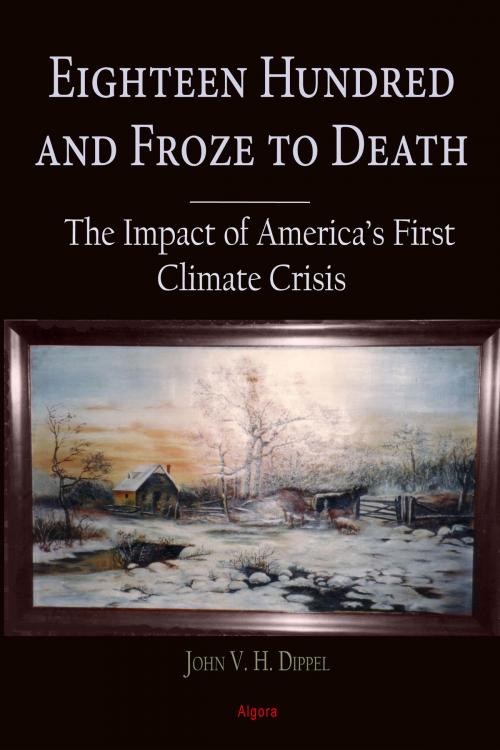Eighteen Hundred and Froze to Death
The Impact of America's First Climate Crisis
Nonfiction, History, Americas, United States, 19th Century| Author: | John V H Dippel | ISBN: | 9781628941197 |
| Publisher: | Algora Publishing | Publication: | January 5, 2015 |
| Imprint: | Algora Publishing | Language: | English |
| Author: | John V H Dippel |
| ISBN: | 9781628941197 |
| Publisher: | Algora Publishing |
| Publication: | January 5, 2015 |
| Imprint: | Algora Publishing |
| Language: | English |
A major meteorological event profoundly affected our nation’s development in 1816. This book shows how this weather phenomenon acted as an accelerator of trends which were just emerging in the early 19th-century - toward greater democracy and the spread of information; settlement of the Western frontier; use of the scientific method to investigate and understand natural phenomena; questioning of long-held religious beliefs as a result of increased knowledge; and industrialization as the means to expand the scope and wealth of the United States.
Like all my books, America’s First Climate Crisis is written in an accessible, engaging style, using anecdotes and thumbnail sketches to evoke the mood and important personalities of the day. While thoroughly researched, the book avoids the pitfall of academic writing by appealing to the curiosity of intelligent readers who may be put off by uninspired or technical language.
The book is organized around various consequences of the disastrous harvests of 1816: after outlining the nature and scope of this calamity, I describe how it brought about a massive exodus to the Ohio Valley and shift in political and economic might to that region; how it undermined the once-unquestioned authority of New England’s Federalist establishment; how it gave greater credence to scientific explanations for weather events and disasters; how it compelled New England merchants to abandon their opposition to manufacturing; and how it helped create a modern awareness of humanity’s place in the universe.
A major meteorological event profoundly affected our nation’s development in 1816. This book shows how this weather phenomenon acted as an accelerator of trends which were just emerging in the early 19th-century - toward greater democracy and the spread of information; settlement of the Western frontier; use of the scientific method to investigate and understand natural phenomena; questioning of long-held religious beliefs as a result of increased knowledge; and industrialization as the means to expand the scope and wealth of the United States.
Like all my books, America’s First Climate Crisis is written in an accessible, engaging style, using anecdotes and thumbnail sketches to evoke the mood and important personalities of the day. While thoroughly researched, the book avoids the pitfall of academic writing by appealing to the curiosity of intelligent readers who may be put off by uninspired or technical language.
The book is organized around various consequences of the disastrous harvests of 1816: after outlining the nature and scope of this calamity, I describe how it brought about a massive exodus to the Ohio Valley and shift in political and economic might to that region; how it undermined the once-unquestioned authority of New England’s Federalist establishment; how it gave greater credence to scientific explanations for weather events and disasters; how it compelled New England merchants to abandon their opposition to manufacturing; and how it helped create a modern awareness of humanity’s place in the universe.















